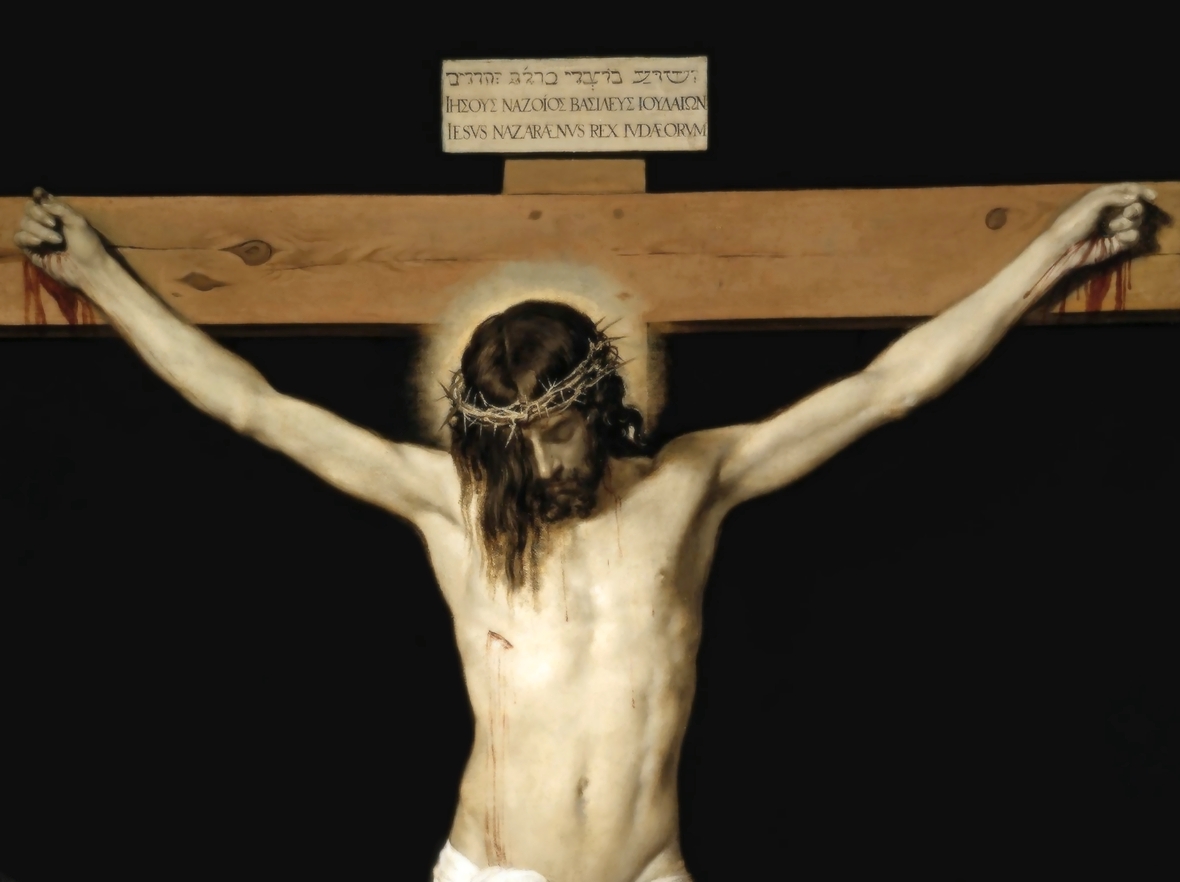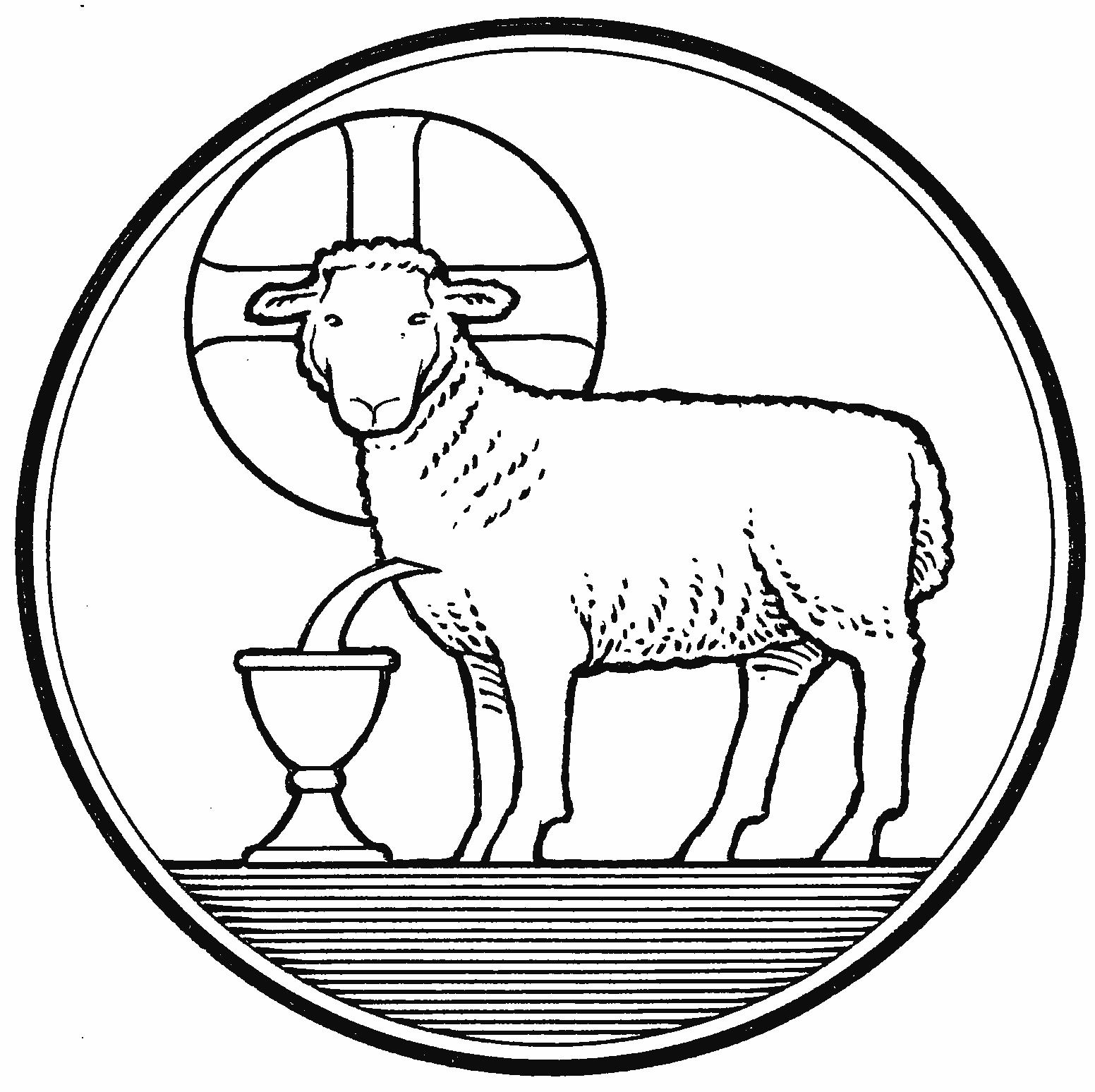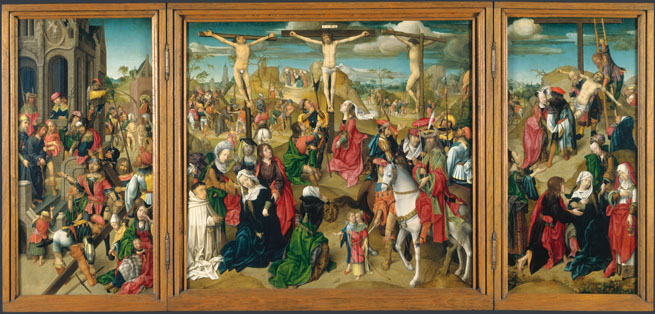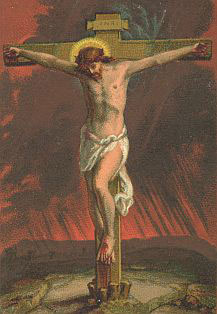Some have asked what we did for Lent. This year we learned the text of an ancient prayer, called the Anima Christi, and talked about what we pray in the petitions of this prayer. You are welcome to join us in these Lenten devotions.
When Jesus disciples began to realize that our Lord was the bearer of the Kingdom of God, they asked Jesus to teach them to pray. They may have expected to get a few spiritual pointers or perhaps some rules to follow. Instead Jesus gave them a text, an actual prayer to pray. Even with those words, we find ourselves at a loss to know how to pray. After exhausting the prayer Jesus taught us, we often find ourselves sputtering to come up with words on our own. If you want to know an interminable and unbearable time, make yourself pray for 10 minutes nonstop or let 2-3 minutes of silence pass during the prayers of the Sunday liturgy. Within seconds we run out of things to say and do.
When Luther was getting his hair cut, his barber confessed to him that he had trouble praying. Like most of us, he knew he should be praying more but was not sure what to do or how to do it. Instead of walking you through Luther’s advice – which you can purchase in the bookstore for a couple of bucks, I thought it might be good for us to learn a prayer together this Lent. It is called the Anima Christi.
We don’t know exactly who, or where, or when this ancient prayer was crafted. It dates from about the 1300s and that is about the full extent of what we know. Its words have been unchanged from that time. It is a wonderful prayer. When people tell me I pray like a book, I take that as a compliment. I read sermons to learn how to preach and I read prayers to learn how to pray. That is no more radical than reading a cookbook to learn how to cook.
Soul of Christ, sanctify me.
Body of Christ, save me.
Blood of Christ, fill me.
Water from Christ’s side, wash me.
Passion of Christ, strengthen me.
O good Jesus, hear me.
Within Thy wounds hide me.
Suffer me not to be separated from Thee.
From the assault of my enemy, defend me.
In the hour of my death, call to me
And bid me come to Thee.
That I may praise Thee with Thy saints
And with Thy angels, forever and ever.
Amen
Brief but profound, simple but elegant, plain but eloquent, its words invite us to pray. What the words actually say is both profound and profoundly relevant to our modern day life. We Christians feel acutely the tension between living in the world while maintaining our citizenship in the world to come. Tonight we begin a slow, sauntering walk through a life of prayer, learning this one, but not merely memorizing its words. Rather we learn from those words what it means to pray and how to do it.
Soul of Christ, sanctify me. The Athanasian Creed reminds us that Jesus is thoroughly man. Perfect God and perfect man, composed of a rational soul and human flesh. For all the symmetry of a three-fold human shape of body, soul, and spirit, Scripture is clear. Man has a material body and a spiritual identity of the soul.
Now we are not Manicheans. We do not esteem the body as bad and the soul as good. Both are God’s creation. As we confess our sins we confess both are stained with sin and corrupted from God’s intention. The Old Testament word for soul is nephesh and in the New Testament psyche. It is this soul that distinguishes man from the rest of all creation. The soul is the seat of intellect, reason, desire, will, and morality. Jesus is not God wearing flesh and blood as if it were some ill fitting clothing. Jesus has a flesh and blood body and a rational human soul. What sin has corrupted and claimed in us remains pure and true in Jesus.
We pray, “Soul of Christ, sanctify me.” Our souls are not holy but stained by sin. We pray here that our Lord, whose soul is pure and untainted, to make us holy in Him. Indeed, this prayer begins with a plea to God to bring us to repentance. We pray that God will not only cover our sins or take them away but that He may cleanse and renew our sinful hearts and minds so that our sinful desire may be overcome. We pray that we may have the will and desire to will and desire what Christ wills and desires.
We too often characterize repentance and being taken to the woodshed, so to speak. We knew we did wrong and we are here to ‘fess up and to receive our punishment. But under it all we are winking at one another. It was bad and it sure hurt to get caught... but it was sure fun, wasn’t it. This is the repentance of fear and not the repentance of a changed heart. I suppose this works in part to shape us up but it does nothing at all to redeem us and, in fact, stands in the way of Christ at work in us and through us.
Such an idea of repentance contaminates our prayer life and turns it into drudgery. We take this idea with us as we bow our heads and fold our hands and the result is that we resent prayer and resent the things we think we should pray for. It becomes for us about as pleasant as asking Santa for underwear and socks. Yeah, we know we need them but that is not where our hearts are. We want toys of all kinds and types.
Christ has not come to take us to the woodshed and make us feel bad about wanting the things that we think make us feel good. He has come to release us from sin’s captivity that we can learn to know, to desire, and to seek after the good that is Christ and His gifts of grace. He has come to sanctify us from the inward heart to the external life.
Soul of Christ, sanctify me. Christ is not like us except with more will power. He is pure of heart. He gives to us forgiveness for our sins, cleanses us from the stain of those sins, redeems us from death and the grave, and creates in us new and contrite hearts. The Spirit works faith in us to receive what He has given, to claim as our own, and to live in its new life and power. Christians are not the same old sinners but with more will power. We are declared holy and made new in Christ. The life we live is not the same old lives but with a nuance of spiritual life. We live new lives now, having been justified by God’s action in Christ, He now works in us to become the people He has declared us to be.
Justification is by faith alone. Scripture is clear. We are purely passive and cannot save ourselves or even cooperate in our salvation. But in sanctification we are active participants, cooperating with the Spirit even in our great weakness. This is God’s work working in our will that we might do good works. The regeneration of our lost lives is by grace through faith. Faith alone grasps hold of what God has done and the Spirit works this faith in us. But renewal includes many more things, such as, the new spiritual impulses kindled in the heart of a person reborn through the Holy Spirit.
In these few short words we pray that God will work in us to renew our hearts by His grace and Spirit that we may be pure as He is pure, holy as He is holy, blameless as He is blameless, and loving as He is loving. Soul of Christ, sanctify me. The problem is that we are not so sure we want to be holy. The old Adam in us still thinks of sin as the fun indulgences our stern God refuses to allow and attempts to sneak away from God for some forbidden fun every now and then. But repentance and sanctification are not like a diet we can go off and grab some chocolate or chips every now and then. When we give into the flesh, the old Adam, we exchange Christ’s gift for the moth ridden and rusty treasure of the world. We give up the holy will of the Spirit’s work for the fleshly desires of me, myself, and I.
So we pray. We pray constantly. We pray earnestly... even as we work out our sanctification with fear and trembling. The apostle is speaking about the reborn who can cooperate after their regeneration through the new powers given by God. In the world, but not of the world. Our citizenship is from heaven. We Lutherans like the word moderate and our piety glories in moderation. But did you know that the Latin has as the primary meaning of this word to regulate. And that is our prayer. Regulate us, O Lord, and make Your holiness and purity to live in the thoughts of our minds, the desires of our hearts, the words of our lips, and the works of our bodies. Soul of Christ, sanctify me. Amen.















